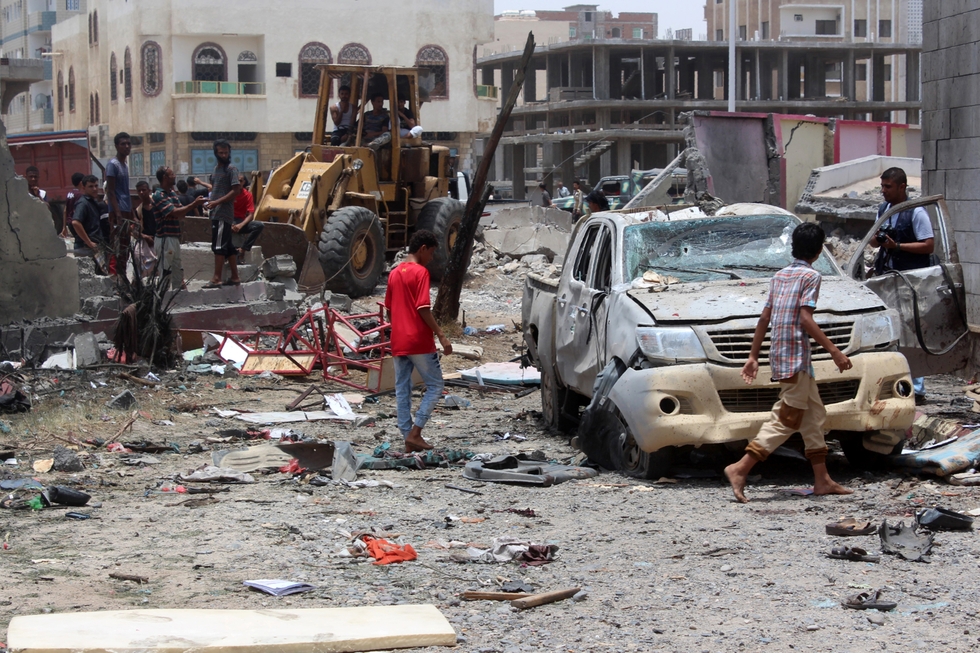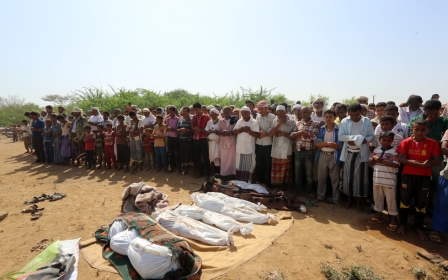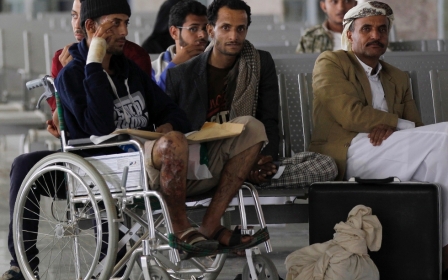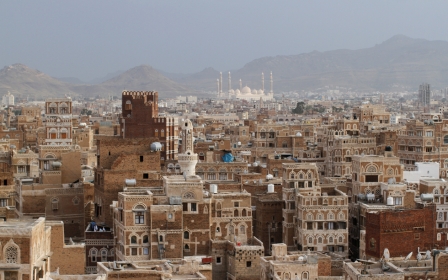UN announces 72-hour ceasefire in Yemen starting Thursday

A 72-hour ceasefire in Yemen will go into effect starting Thursday, the United Nations announced on Monday.
A cessation of hostilities that first went into effect in April "will re-enter into force at 23:59 Yemen time on 19 October 2016, for an initial period of 72 hours, subject to renewal," the UN's special envoy for Yemen, Ismail Ould Cheikh Ahmed, said in a statement.
The ceasefire opens the door for negotiations to find a political solution to the conflict. April's truce was followed by repeated rounds of talks in Kuwait between the warring sides, which did not come to fruition.
Yemeni President Abd Rabbuh Mansour Hadi had agreed to the truce earlier in the day.
Foreign Minister Abdulmalek al-Mekhlafi wrote on Twitter that Hadi agreed to the halt in fighting if Houthi rebels adhere to it, activate a UN-backed committee to watch the truce, and lift the siege on the encircled city of Taiz.
Cheikh Ahmed said he had been in contact with the Houthis’ lead negotiator and with Hadi's government.
The announcement comes after the United States, Britain and Cheikh Ahmed urged the warring parties on Sunday to declare a ceasefire, which they said could start within days.
US Secretary of State John Kerry said if Yemen's opposing sides accepted the ceasefire, the UN envoy would work through the details and announce when and how it would take effect.
"This is the time to implement a ceasefire unconditionally and then move to the negotiating table," Kerry said.
The conflict in Yemen has killed almost 6,900 people, wounded more than 35,000 and displaced at least three million since March last year, according to the United Nations.
This article is available in French on Middle East Eye French edition.
Middle East Eye propose une couverture et une analyse indépendantes et incomparables du Moyen-Orient, de l’Afrique du Nord et d’autres régions du monde. Pour en savoir plus sur la reprise de ce contenu et les frais qui s’appliquent, veuillez remplir ce formulaire [en anglais]. Pour en savoir plus sur MEE, cliquez ici [en anglais].




